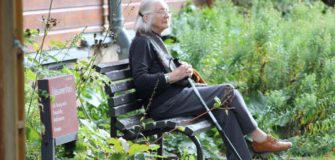How to help elders fight loneliness during isolation
Share
Rising the need for social isolation and self-imposed quarantine and the spread of this global pandemic is causing workers to avoid the workplace. The outbreak of COVID-19 left far more people isolated than in a long time.
When your family and friends remain in place if you are forced to stay away from all your colleagues socially, do you feel isolated?
Did you refuse? Society is disconnected. How does this affect you mentally?
Why the Seniors? What is Research Showing Us?
According to recent studies, the social isolation of people, especially the elderly, brings with it a greater likelihood of psychological and medical risks “COVID-19: exposure, with an emphasis on social insulation in the Elderly.” The major factors of risk include the physical limitations of older adults which affect their own mobility and ability to perform (Novotney, 2019; Shaw, 2020; Robinson, 2019).
They may also feel isolated by themselves without family support, social relationships (friendship building, social contact, etc.). They are not already helped by others.
Social isolation can also result in solitude and depression. The physiological ability of someone to combat infection and inflammation can decrease loneliness and long-term social distances. The stress and anxiety caused by isolation can alter the white blood cell and create more problems for older people.
So, what are we willing to do?
Social isolation is a way to improve health, but how can we counter the adverse consequences of social isolation at COVID-19 lockdown in the present time, particularly in the elderly? We now have the technology to combat social isolation, but what if the elderly does not have or know how to use a smartphone? Work shows that development experts and specialists have creative ways of keeping lonely elderly people in touch. In this season of social distance, it is important that elderly people are socially linked, and we can monitor their well-being, their needs, and their health through technology.
During COVID-19 Local authorities play an important role
Around the same time, the administration is also playing a vital role for the elderly in this season. Local government services should include food delivery, medical visits, and specialists and transportation for the elderly, especially for medical appointments to the hospital. These services can protect them against possible infection with COVID-19. The government should be aware of how COVID-19 will negatively influence elderly people in our society and the negative impact of social exclusion can be mitigated if the state can be proactive and bring these measures into action in local areas.
This article was first seen on:
- https://www.psychologytoday.com/us/blog/hope-resilience/202004/how-help-older-adults-fight-loneliness-during-covid-19
- Jones, X. R. (2020). Covid-19: An Exposition, with a Focus on Social Isolation in the Elderly (UK). 10.












